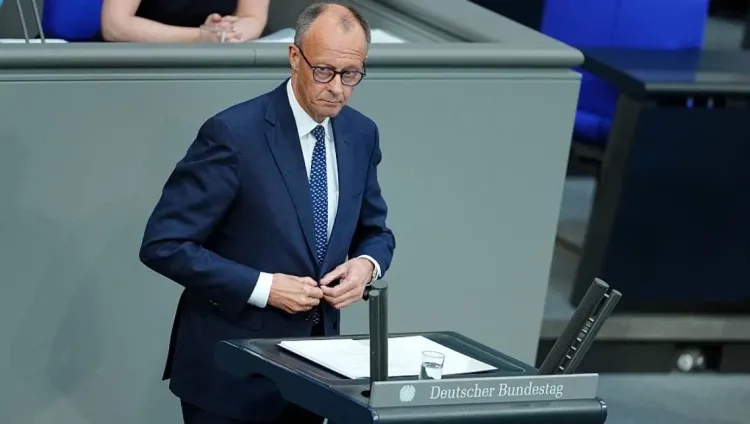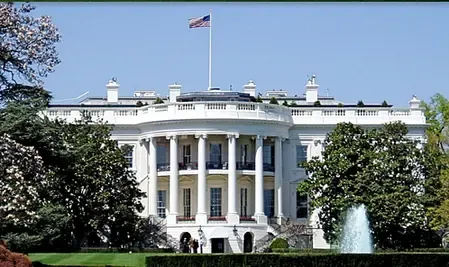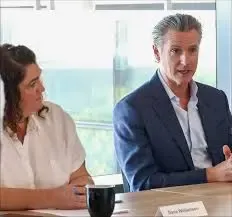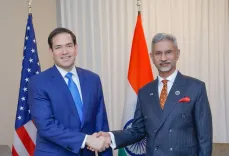What Are Germany's New Chancellor Friedrich Merz's Plans for Defence and Economic Revival?

Synopsis
Key Takeaways
- National Security: Strengthening the Bundeswehr is a top priority.
- Economic Revival: A focus on investment and reforms to counter recession.
- Flexible Defense Spending: Coalition agreement allows more adaptable military funding.
- Infrastructure Fund: A 500-billion-euro initiative for climate and infrastructure.
- Competitiveness: Emphasis on reducing bureaucracy and promoting business growth.
Berlin, May 15 (NationPress) Germany's newly appointed Chancellor Friedrich Merz has vowed to prioritize national security and economic recovery in his inaugural address to the Bundestag.
In his first significant speech as Chancellor, delivered in the lower house of Parliament on Wednesday, Merz detailed the policy framework of his coalition government, which comprises the Christian Democratic Union/Christian Social Union (CDU/CSU) and the Social Democratic Party (SPD).
During his address, he emphasized the need to bolster the Bundeswehr — Germany's armed forces — as a key priority, as reported by the Xinhua news agency.
He affirmed his commitment to allocate the necessary resources to transform it into Europe's most formidable military force.
As part of the coalition's agreement between CDU/CSU and SPD, both parties have resolved to exempt defense spending beyond one percent of GDP from constitutional debt limitations, enabling more adaptable military funding.
Focusing on the economy, Merz recognized that Germany is presently experiencing a recession.
He pinpointed excessive bureaucracy, high energy costs, and a burdensome tax system as major hurdles to growth.
To tackle these issues, he promised a return to economic growth through investments and structural reforms.
He stated that the emphasis would be on enhancing competitiveness and protecting jobs.
The coalition has also committed to creating a 500-billion-euro ($560 billion) fund dedicated to supporting infrastructure projects and climate initiatives.
Merz further highlighted the significance of attracting private investments while maintaining a cautious approach to public debt.
Following Russia's extensive invasion of Ukraine, former Chancellor Olaf Scholz indicated that this development would likely position Germany as the largest conventional army among NATO's European allies.
Merz expressed his intention to keep the Trump administration engaged in supporting Ukraine, mentioning recent discussions with President Donald Trump and appreciating his support for an unconditional 30-day ceasefire.
Germany's military has faced years of neglect, and after Scholz's commitment to elevate Germany's defense spending to the NATO target of two percent of GDP and establish a 100 billion-euro special fund for military modernization, the target was met. However, this fund is expected to be depleted by 2027.
Merz assured that “we will fulfill our commitments” to both Germany's interests and NATO, while not addressing the U.S. demands for allies to increase defense investments to five percent of GDP.
He acknowledged that Germany's security and global influence “stand and fall with our economic strength”.
Merz committed to reducing bureaucracy, advancing digitization, offering tax incentives for businesses, and fostering more EU trade agreements.
“We will do everything to get Germany's economy back on the growth track,” he stated.
“We aim to invest and reform... through our own efforts, we can once again become a growth locomotive that the world admires.”









